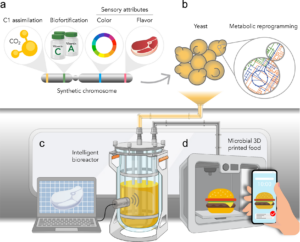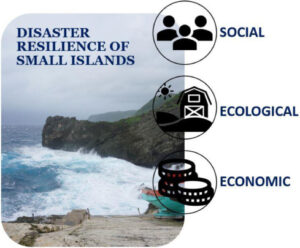Introduction: Unveiling the Dawn of Sustainable Biomanufacturing
In the quest for sustainable industrial practices, the realm of biomanufacturing has emerged as a beacon of promise, offering eco-conscious alternatives to conventional methods. However, the reliance on biomass sugars, particularly sourced from agricultural staples like corn, has precipitated formidable challenges, chief among them being the competition with food production. The burgeoning demand for fuels and chemical products exacerbates this strain, prompting concerns about the sustainability and ethical implications of further expanding agricultural processes. In a watershed study recently published in ChemBioChem, a consortium of researchers from Osaka University, in collaboration with esteemed partners, has unveiled a paradigm-shifting approach to biomanufacturing. Their groundbreaking methodology, underpinned by the utilization of chemically synthesized non-natural sugars, promises to revolutionize the landscape of industrial production by circumventing traditional resource constraints. This innovative approach not only addresses the pressing issue of food competition but also offers a glimpse into a future where industrial processes can thrive without imposing undue burdens on agricultural systems.

Moreover, the advent of chemically synthesized sugars opens doors to unprecedented levels of flexibility and efficiency in biomanufacturing. Traditional reliance on biomass sugars has often been plagued by constraints such as seasonal variations, geographical limitations, and resource-intensive cultivation practices. By contrast, chemically synthesized sugars present a uniform and readily accessible raw material, untethered from the constraints of agriculture. This newfound independence not only streamlines production processes but also enhances scalability and reliability, laying a robust foundation for sustainable industrial growth. Furthermore, the versatility of chemically synthesized sugars enables exploration into novel avenues of biomanufacturing, facilitating the development of innovative products and processes that were previously hindered by resource constraints. In essence, the integration of chemically synthesized sugars into biomanufacturing practices heralds a transformative paradigm shift, unlocking the full potential of sustainable industrial production in the 21st century and beyond.
Innovative Biomanufacturing Approach: Rethinking Raw Material Procurement
At the core of this transformative endeavor lies a radical departure from convention. By leveraging chemically synthesized sugars as the exclusive substrate for fermentation processes, the research consortium has achieved a milestone previously deemed unattainable: conducting biomanufacturing without reliance on conventional biomass sugars. This groundbreaking achievement not only challenges existing norms but also lays the foundation for a more sustainable and resource-efficient future for industrial production. This departure from traditional practices signifies a shift towards a more resilient and ecologically harmonious approach to biomanufacturing, one that transcends the limitations imposed by reliance on finite agricultural resources. Moreover, by embracing chemically synthesized sugars, the research community heralds a new era of innovation and adaptability in industrial processes, paving the way for enhanced flexibility, scalability, and economic viability. This transformative leap not only addresses immediate challenges associated with resource scarcity and environmental degradation but also fosters a culture of ingenuity and forward-thinking in the pursuit of sustainable development.
Addressing Environmental Concerns: Forging a Path to Ecological Resilience
The adoption of chemically synthesized sugars represents more than just a technical advancement; it embodies a commitment to environmental stewardship. By sidestepping the inherent competition with food production associated with traditional biomass sugar sourcing, this innovative approach mitigates concerns surrounding land use, water consumption, and pollution stemming from large-scale agriculture. In doing so, it charts a course towards ecological resilience and sustainability, safeguarding precious resources for future generations. This shift towards sustainable biomanufacturing not only alleviates pressure on agricultural systems but also fosters a more harmonious relationship between industrial production and the environment. By reducing the strain on arable land and freshwater resources, chemically synthesized sugars offer a pathway to mitigate the environmental impacts of industrial activities while simultaneously meeting the growing demand for renewable fuels and chemical products. Moreover, by promoting resource efficiency and minimizing waste generation, this innovative approach aligns with global efforts to combat climate change and preserve biodiversity, thus laying the groundwork for a more sustainable and resilient future for our planet.

Advantages of Chemical Sugar Synthesis: Unveiling the Promise of Innovation
The allure of chemical sugar synthesis lies in its manifold advantages over conventional agricultural processes. With unparalleled synthesis rates, minimal water and land footprints, and independence from nutrient resources such as phosphorus and nitrogen, chemically synthesized sugars present a tantalizing prospect for biomanufacturing industries seeking to enhance efficiency and reduce environmental impact. Despite their non-natural composition, these sugars emerge as potent and versatile raw materials, poised to catalyze a wave of innovation across diverse industrial sectors. This paradigm shift in raw material sourcing not only streamlines production processes but also enhances the overall sustainability and resilience of biomanufacturing operations. By reducing reliance on finite agricultural resources and minimizing the environmental footprint associated with traditional sugar production methods, chemically synthesized sugars pave the way for a more efficient and environmentally friendly approach to industrial manufacturing. Moreover, their versatility opens doors to new possibilities in product development and process optimization, enabling biomanufacturers to explore novel applications and markets previously deemed inaccessible. As such, chemical sugar synthesis stands at the forefront of a transformative revolution in biomanufacturing, offering a pathway towards a more sustainable and prosperous future for industries and ecosystems alike.
Overcoming Challenges in Bioproduction: Triumphing over Adversity
Yet, the journey towards harnessing the full potential of chemically synthesized sugars in biomanufacturing has been rife with challenges. The research consortium encountered and surmounted numerous obstacles, from identifying and neutralizing growth inhibitors within the synthesized sugar solutions to optimizing fermentation conditions for optimal productivity. Through perseverance and ingenuity, they achieved the unprecedented feat of lactate production under oxygen-limited conditions, laying the groundwork for a new era of bioproduction possibilities.
Potential Applications and Implications: Illuminating the Path Forward
The ramifications of this breakthrough reverberate far beyond the confines of the laboratory. With the ability to produce lactate via glycolysis using chemically synthesized sugars, a vast horizon of possibilities unfolds for biomanufacturing industries worldwide. From renewable fuels to sustainable chemical products, the potential applications are boundless, promising to redefine the contours of industrial production in the 21st century and beyond. Moreover, by addressing key challenges such as food competition, regional dependence, and resource depletion, this innovative approach stands poised to catalyze a transformative shift in the global biomanufacturing landscape.
Conclusion: Embracing a Sustainable Future
In conclusion, the adoption of chemically synthesized sugars heralds a new dawn for biomanufacturing, one characterized by sustainability, resilience, and innovation. As humanity grapples with the urgent imperatives of environmental stewardship and resource conservation, this groundbreaking approach offers a beacon of hope amidst the complexities of the modern industrial landscape. By charting a course towards a future powered by renewable resources and ethical production practices, we embark on a journey towards a more harmonious relationship with the planet we call home. In embracing the promise of chemically synthesized sugars, we not only redefine the possibilities of industrial production but also reaffirm our commitment to building a brighter, more sustainable future for generations to come.
Related Topics :
- Believe in Better: Reimagine a Thriving Earth – Micro2media
- The Convergence of Health, Ecology, and IT: Smart Solutions for a Sustainable Future – Micro2media
- Biomanufacturing using chemically synthesized sugars enables sustainable supply of sugar without competing with food | ScienceDaily
- The Urgency of Sustainable Practices
